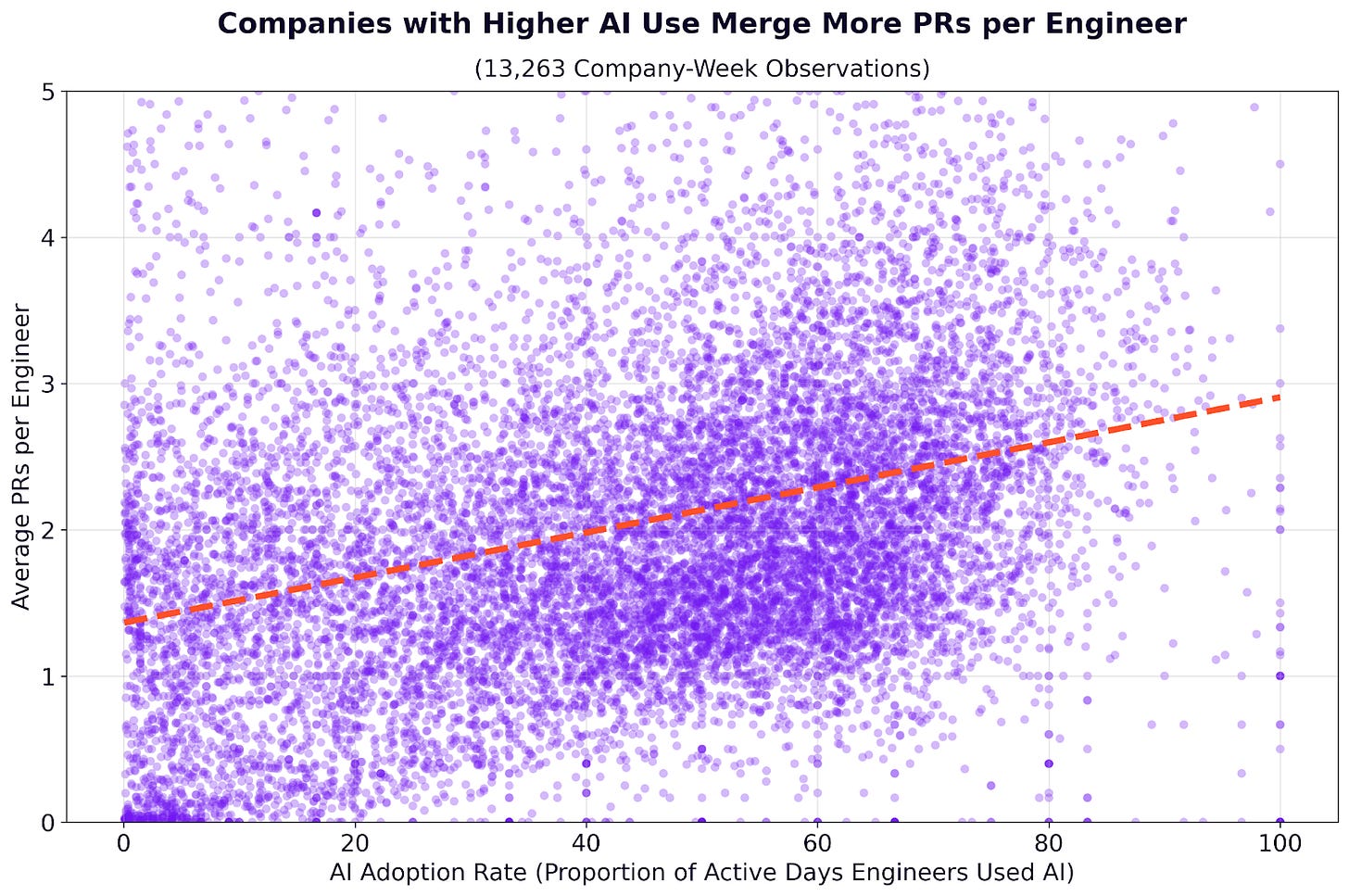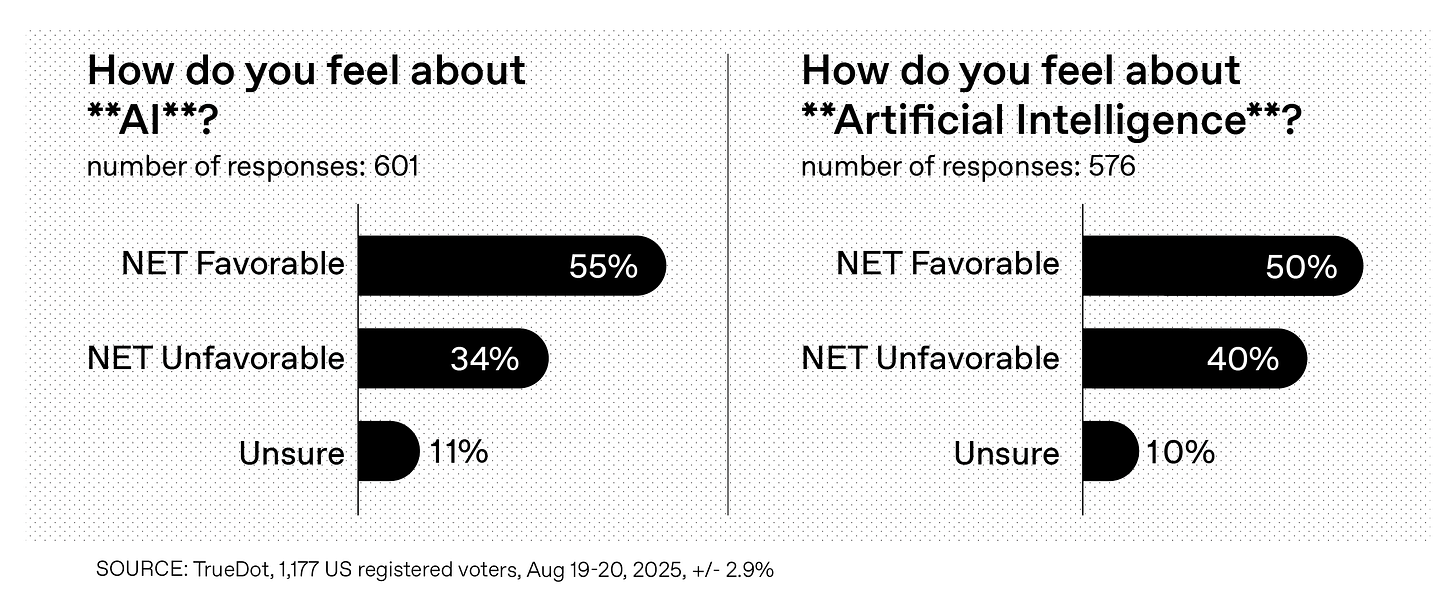Hi
Welcome (back) to The Prompt. AI isn’t well understood, but we learn a lot in our work that can help. In this newsletter, we share some of these learnings with you. If you find them helpful, make sure you’re signed up for the next issue.
[AI Economics] New data on AI and software engineers
New data sheds more light on how AI is changing the nature of work for software engineers: broad AI adoption helps engineers ship more, and faster, while they lean harder into judgment and review.
Working with Jellyfish, which tracks developer workflows across over 500 companies and tens of thousands of engineers, our Economic Research team analyzed how AI coding tools including OpenAI’s Codex are affecting team performance. We found that:
Teams that adopt AI tools tend to ship more code, faster. These teams produce approximately 1–2 more pull requests (PRs) – effectively, bundles of changed or new code – per engineer each week compared to a baseline of 1.4 PRs. They also cut the average time for the cycle of producing new code down by roughly 4 hours from 16.7 hours, often turning multi-day tasks into same-day resolutions.
Trade-offs in quality may be low. We observed a small uptick in PRs that were sent back due to errors (about 1 in 50) and an increase in bugs fixed (1 extra bug resolved per 10 engineers). It’s unclear in the data whether these are AI-induced bugs, or an increase in developers using their newfound productivity to tackle backlogs. Overall, this suggests there could be small quality declines when AI is used more heavily.
An analysis like this, using real-world data, helps us understand the relationship between productive teams and AI use. It doesn’t definitively prove that the AI tools are behind the increase in productivity. It does, however, highlight that people and AI are skilled at different things, and that AI use can free up employees’ time for them to focus on high-impact tasks that only humans can do. This is a topic that we’ll continue to study closely and cover in The Prompt. – Harrison Satcher, Cassandra Duchan Solis, and Rachel Brown
[Data] “AI” or “artificial intelligence”?
Yes, there is a difference in public opinion between calling it “AI” or “artificial intelligence.”
Our friends at TrueDot ran an experiment for us in their latest omnibus survey (1,177 registered US voters, Aug. 19-20, +/- 2.9% ). Half the sample was asked about their feelings of “artificial intelligence”, and 50% of them registered a favorable impression, versus 40% with an unfavorable view (+10). But when the other half was asked about their feelings on “AI”, the results were better – 55% favorable, 34% unfavorable (+21).
In particular, Gen X respondents, Baby Boomers, men, Blacks, Latinos, Democrats and voters without college degrees responded more favorably about “AI” than “artificial intelligence.”
Why the difference? In focus groups we listened in on earlier this year, some participants scoffed at the word “intelligence” and the idea that AI products give them intelligence. Their reaction: we’re already smart enough, and/or we don’t need a technology, or (worse?) a tech company, to give us intelligence.
Similarly, the term “artificial” has a negative connotation. People’s biggest concerns about AI are either their own loss of control over it, or society’s loss of control over it. That’s basically the plot of any movie in which AI is the baddie. Given how much people fear deepfakes and misinformation, the term “artificial intelligence” likely sends people in that direction more than the acronym “AI.”
So it does matter what you call it.
[Prompt] Are you ready for some (fantasy) football?
Not only is football season drawing nearer; so are fantasy football drafts. And guess what? ChatGPT can help. Our colleague Tyler Johnson suggests this prompt to help you best your competition. Try it out yourself, and play around with other strategies:
[Disclosure]
Prompt graphics created by Base Three using ChatGPT.










Hi! Thanks for sharing your question. I think it would help to provide more details about your setup or the specific issue you’re facing. https://crscalculate.com